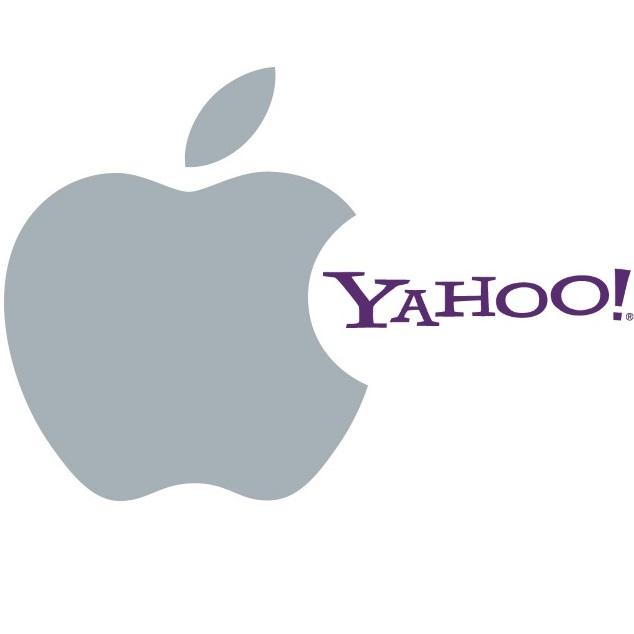The  past few weeks have brought the latest in several rounds of speculation regarding Yahoo! being acquired. Microsoft has been grabbing the biggest headlines, but speculation has discussed Verizon, Facebook and others.
past few weeks have brought the latest in several rounds of speculation regarding Yahoo! being acquired. Microsoft has been grabbing the biggest headlines, but speculation has discussed Verizon, Facebook and others.
 past few weeks have brought the latest in several rounds of speculation regarding Yahoo! being acquired. Microsoft has been grabbing the biggest headlines, but speculation has discussed Verizon, Facebook and others.
past few weeks have brought the latest in several rounds of speculation regarding Yahoo! being acquired. Microsoft has been grabbing the biggest headlines, but speculation has discussed Verizon, Facebook and others.
I find it surprising that one of the most logical acquirers has not been mentioned. Namely Apple. Yahoo will compliment Apple's strengths, fill their gaps, and most importantly give them leverage for iDevice sales.
Apple, for all of their success in devices and media sales, does not have any strong position in mass market web services such as e-mail and search. Microsoft has Outlook (formerly Hotmail) and MSN.com. Facebook has mobile messaging (even for non Facebook users) and a controlling position in content consumption and advertising. Google has GMAIL and dominance in advertising. Apple, however, dominates media sales on iDevices through iTunes, but has very little for non-iDevice users. Are there any Apple services that are used by non-iDevice users?
Acquiring Yahoo would catapult Apple to a strong position in e-mail, search, news and other web services. While it will take work to turn around Yahoo's downward momentum, Apple has the cash to invest in it.
The critical factor, however, is that Apple can benefit from Yahoo's web services in ways that nobody else can. While others will look to Yahoo for direct profits, Apple can leverage Yahoo for device sales.
Unlike Google and Microsoft, Apple's primary profits come from device sales. Sales of music and movies are profitable, but their primary value is in creating the unique value proposition of iPhones, iPads and iPods for media consumption. This is in stark contrast to Amazon, who profits primarily from sales and not from devices, and Google, who profits primarily from advertising and not directly from Android.
What this means is that even if Yahoo's services are not profitable enough to support a company, Apple will benefit heavily if they leverage Yahoo services to motivate iDevice sales.
GMAIL users looking to buy a smartphone know that they can get better Google integration on Android phones. Google contacts and calendar are strongly integrated with Android, and Google apps such as Maps are often more advanced on Android than iOS. This Android support for GMAIL and Google services has paid off for Google: GMAIL user numbers have risen from 96M to 135M in the past 2 years, largely attributed to GMAIL being integrated with Android.
Suppose Yahoo mail users knew that iDevices would offer stronger support for Yahoo mail than Android? Suppose Yahoo contacts and calendar were integrated directly with iDevices? If Apple would gain even a small percentage of additional iDevice users, it would gain much more from Yahoo ownership than direct profit.
What other company can benefit so much from Yahoo services even if the profit from Yahoo services is lower than desired?
To date the idea of Apple acquiring Yahoo is pure speculation. It is true that most Apple acquisitions have been fairly small technologies that fill gaps in Apple's technology roadmap. They have had numerous acquisitions in the hundreds of millions of dollars range, but few in the Billions, and none the size of Yahoo.
But Apple's war with Google and Microsoft is heating up. Apple is losing device market share to Android devices, and when Apple's business model is built around device sales, this market share is central. As increasing numbers of smartphone buyers base their buying on e-mail and software integration, a Yahoo acquisition might be just the trick for Apple to counter Google.